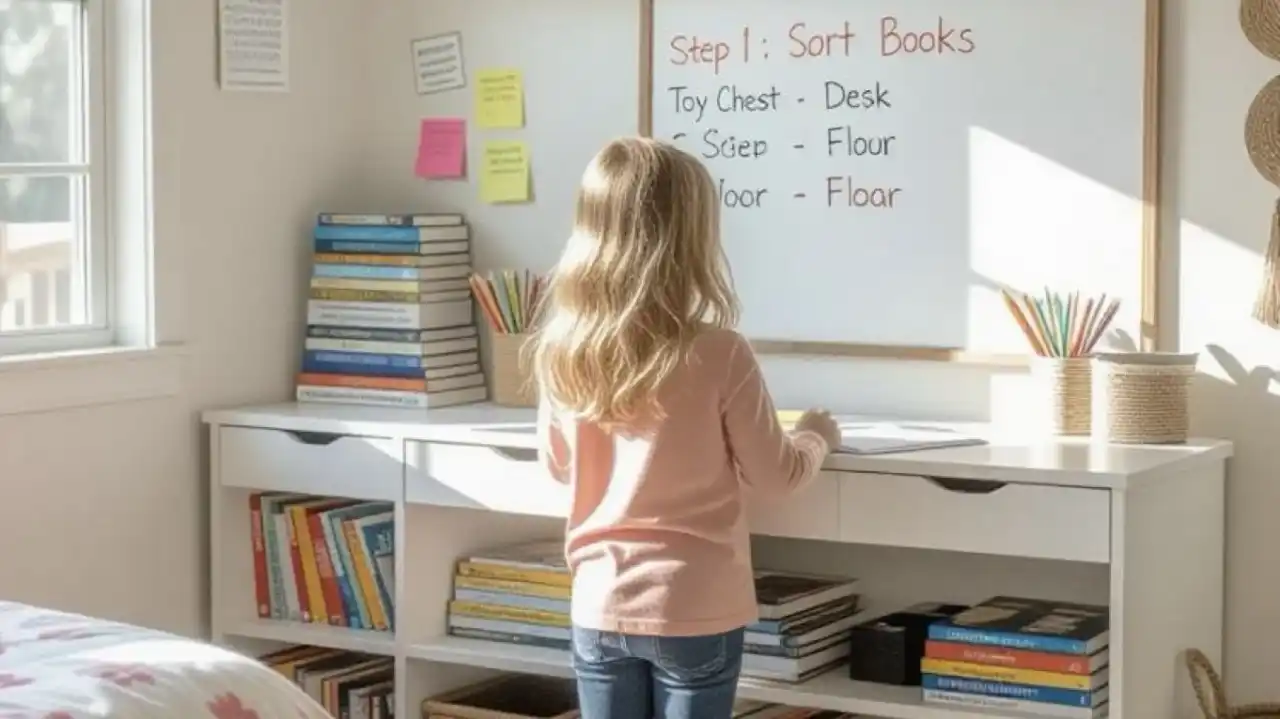
Strategic Problem-Solving: Break Big Problems Into Steps
L
arge, complex tasks often paralyze children, causing them to give up before they even begin. Whether it’s cleaning a messy room or tackling a challenging assignment, the sheer scale of the problem can overwhelm them. These aren’t necessarily tasks with a fixed order—they just seem too big to start. But by choosing any small, doable piece, a child builds momentum and confidence. Teaching them to ask, “What’s one piece I can start with?” shifts their focus from the intimidating whole to manageable parts. This skill transforms chaos into clarity, empowering them to organize schoolwork, projects, and even life goals with calm confidence.
One weekend, my daughter stood frozen in front of her disastrously cluttered bedroom, overwhelmed by where to start. Instead of commanding her to “just clean it,” I asked her to pick a single area — her bookshelf — and sort that first. Once that small victory was complete, she moved naturally to the toy chest and the desk. By the end, the room was spotless. More importantly, she learned that tackling big challenges one step at a time makes the impossible feel possible.
Help your child make this habit second nature by practicing weekly breakdowns of larger tasks. If they face cleaning, studying, or project work, guide them to list four small steps on a whiteboard or sticky notes. Encourage them to check off each step as they go, building a visual trail of progress. Apps like “Plan Easy” or using simple planners can add structure and fun. Over time, they’ll internalize the wisdom that any large goal is simply a series of small, achievable victories — a skill that will serve them in every realm of life.
Strategic Problem-Solving

Strategic Problem-Solving: Think It Through Before You Act
Teach children to pause and reflect before responding. This supports emotional regulation, patience, and thoughtful choices.

Strategic Problem-Solving: Strengthen Sustained Attention
Focus grows through practice. Use gentle routines to help children develop concentration and stay engaged without stress.
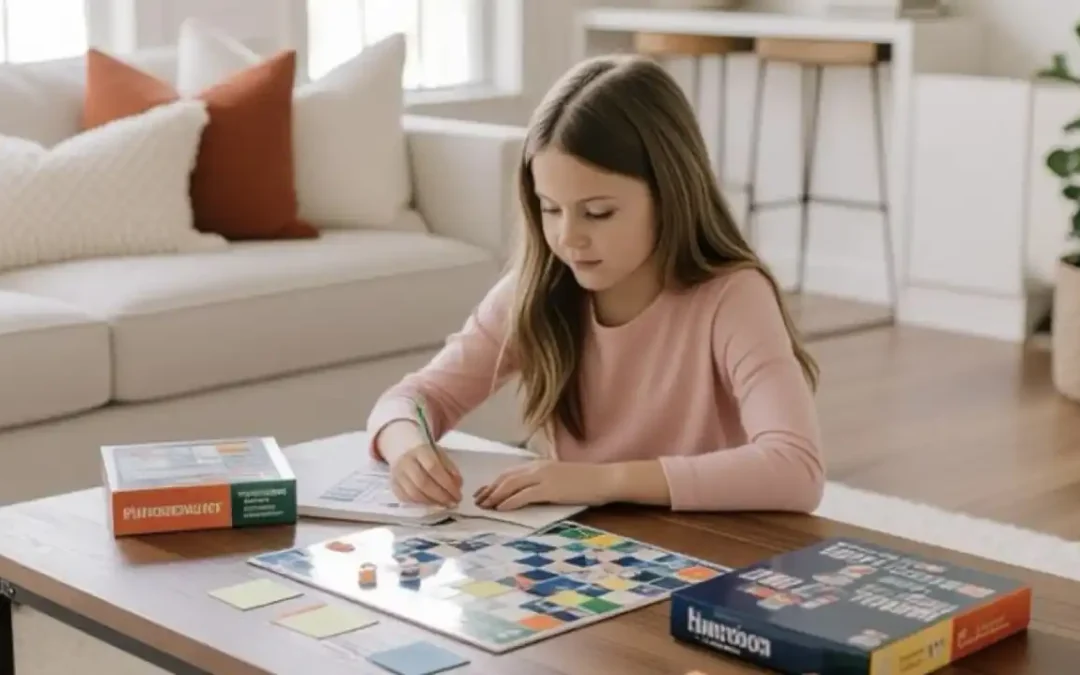
Strategic Problem-Solving: Plan Ahead
Planning helps children manage time, emotions, and goals. Learn how to encourage simple planning habits that grow into lifelong strengths.
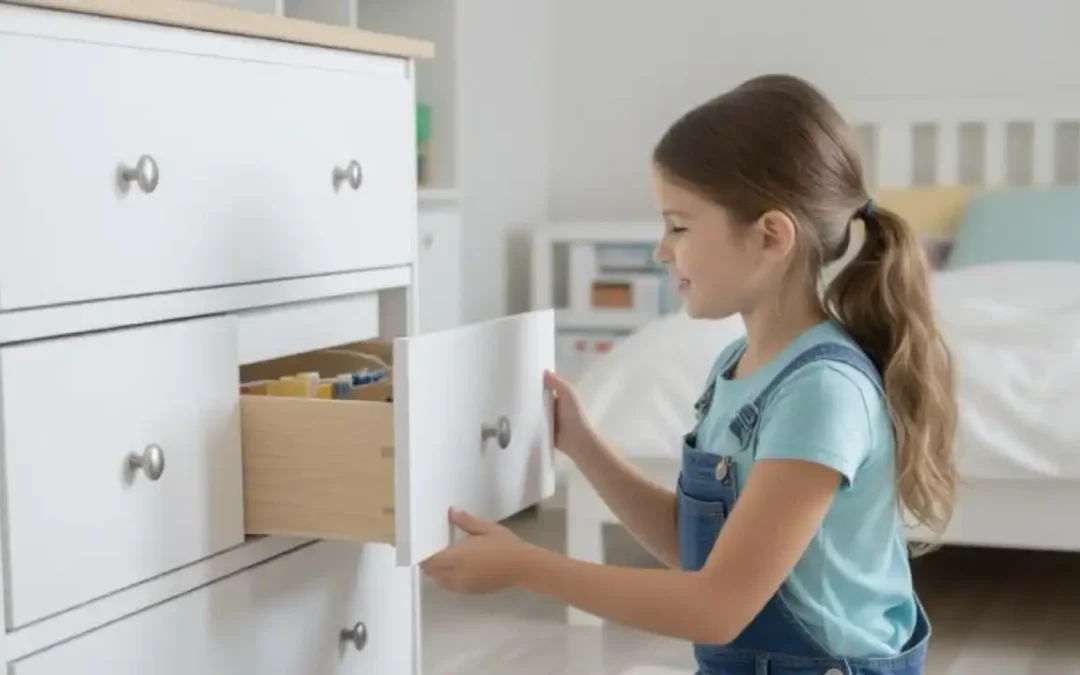
Strategic Problem-Solving: Invent New Solutions When Stuck
Encourage creativity when challenges arise. Children learn flexibility and resilience by trying new approaches when the first attempt doesn’t work.
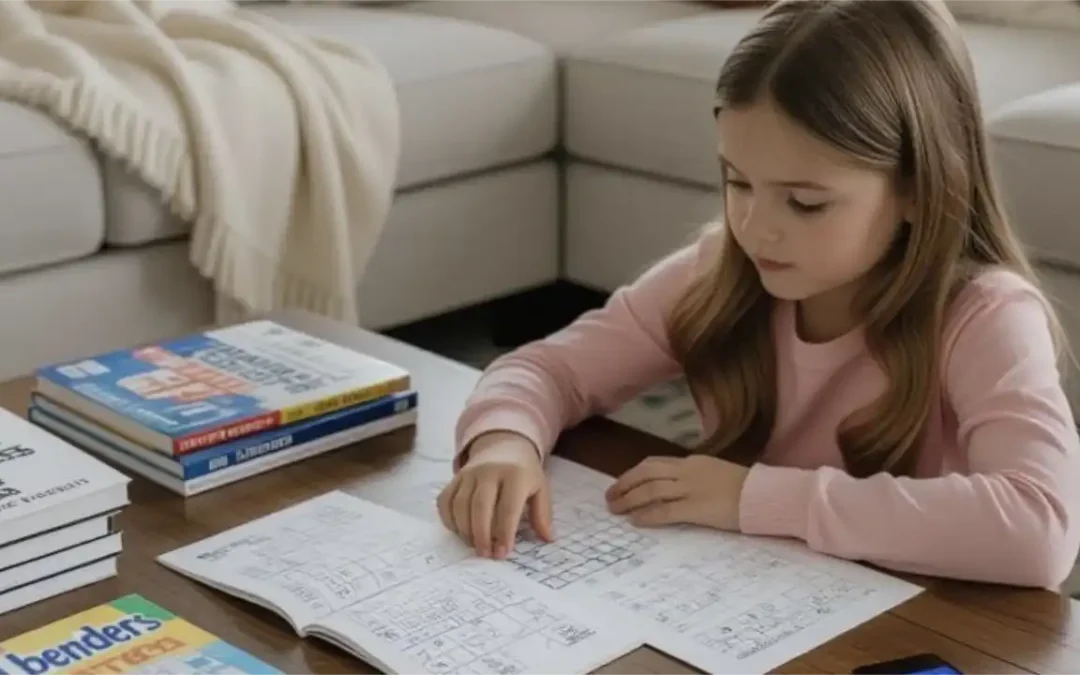
Strategic Problem-Solving: Solve Problems with Clues
Teach children to look for clues, test ideas, and try again. Clue-based reasoning strengthens persistence and careful observation.

Strategic Problem-Solving: Recognize and Extend Patterns
Patterns help children understand math, language, and nature. Spotting patterns builds prediction, memory, and reasoning skills.
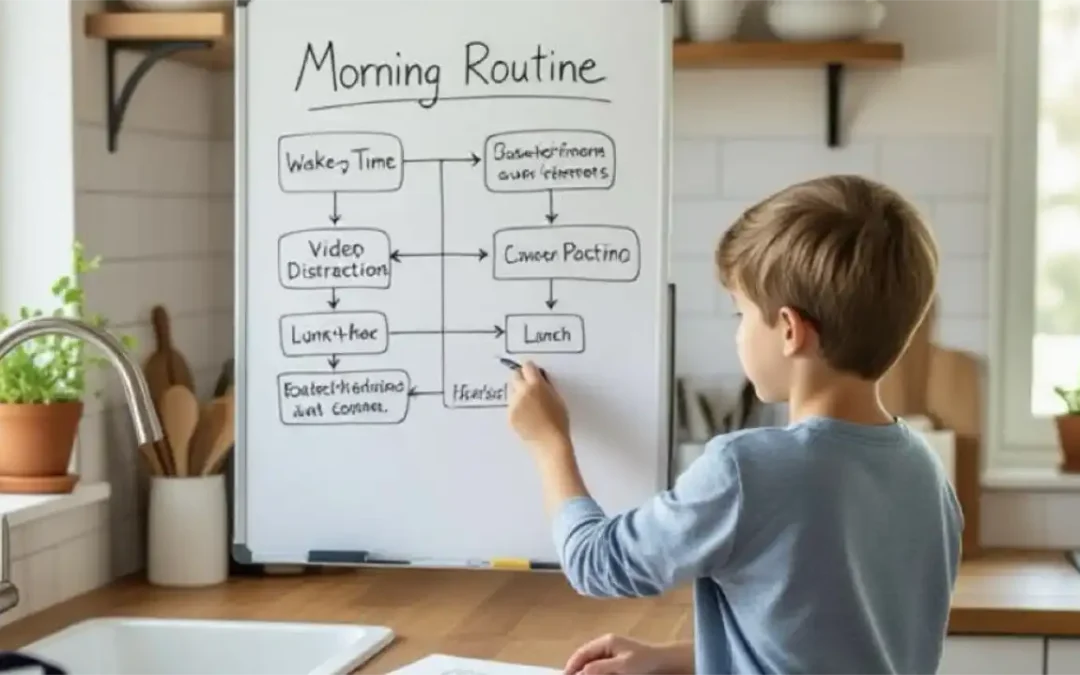
Strategic Problem-Solving: Think in Systems
Show children how parts connect within a whole. Systems thinking encourages clarity, planning, and thoughtful decision-making.

Strategic Problem-Solving: Sequence Complex Tasks Effectively
Teach children to break big tasks into simple steps. Sequencing builds problem-solving skills, independence, and confidence.
Table of contents

Primordial Soup for the Mind: Navigation
Navigate the book Primordial Soup for the Mind.
TIPS
- Ask “What’s one piece you can do?” to spark planning.
- Praise each step to spark pride.
- Mark steps on a whiteboard.
- Pick challenges like chores or schoolwork.
- Share plans with siblings.
ACTIVITIES
- Chore Steps: Pick a task, list four steps, tackle one, 10 minutes.
- Project Plan: Choose a goal, outline steps, try one, 10 minutes.
TOOLS
Sticky notes, Plan Easy app.

Download “Primordial Soup for the Mind: A Parent’s Guide to Nurturing Intellectual Growth”
Enter your information to get this article and hundreds more as part of the FREE book Primordial Soup for the Mind.
Share your thoughts with the Thought Academy community in the Comments section below.

Sharpen those skills!
Enter your information to get our FREE practice exercises so you can hone your critical thinking and reasoning skills!







0 Comments